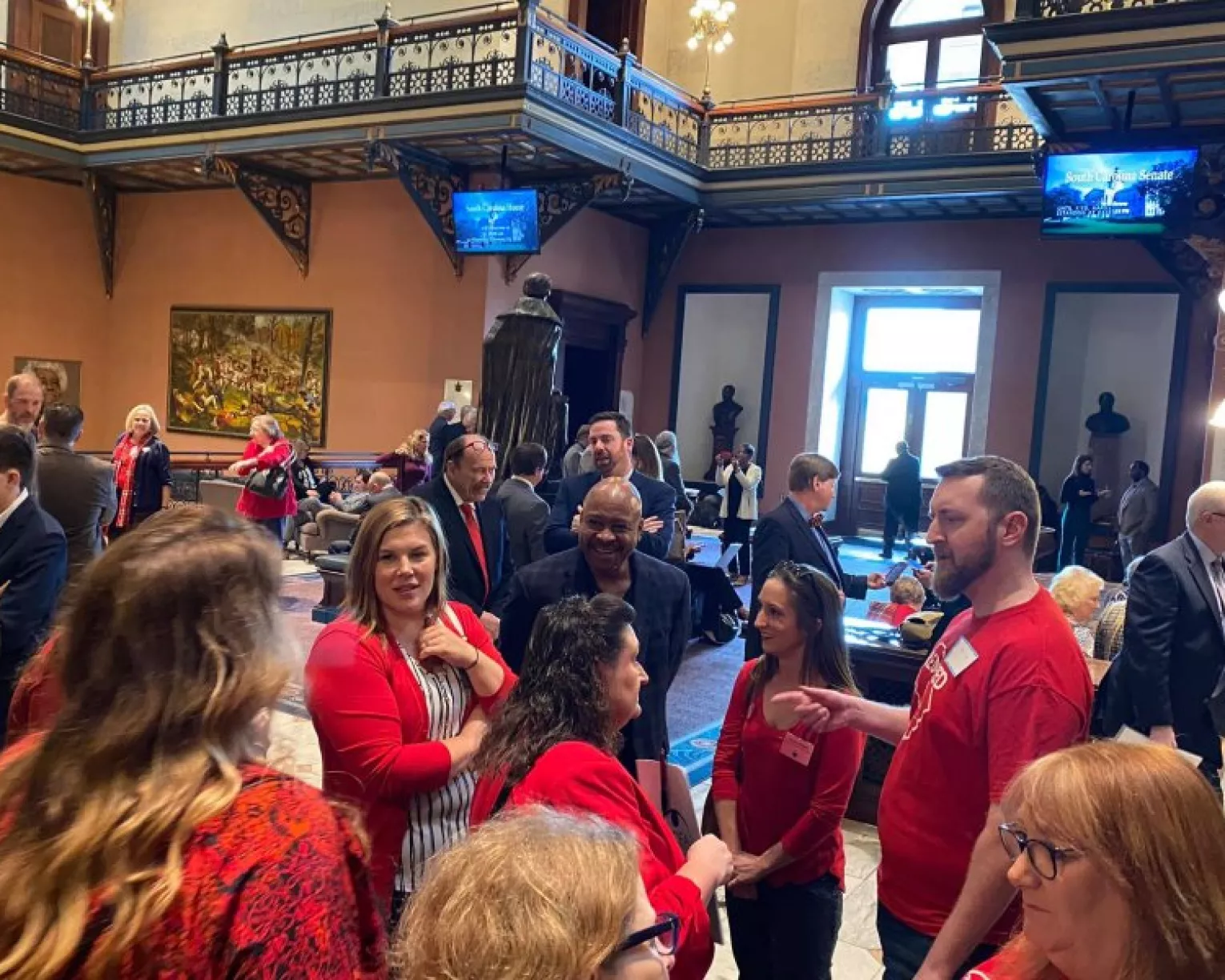
Washington—The National Education Association (NEA) and the Law Firm Antiracism Alliance (LFAA) today unveiled a first-of-its-kind legal and scholarly report titled, “The Very Foundation of Good Citizenship: The Legal and Pedagogical Case for Culturally Responsive and Racially Inclusive Public Education for All Students.” The report presents social science evidence that establishes why a culturally responsive and racially inclusive curriculum is both the very foundation of good citizenship and is beneficial for all students. It also notes that laws and policies that censor and punish educators for doing their jobs are not only misguided and harmful but also unlawful. Click here to read the full report.
“Educators across the country are working hard every day to provide all students—regardless of color, the language they speak, or ZIP code—with a great public school education that imparts honesty about who we are and integrity in how we treat each other, and gives students the freedom to pursue their dreams,” said NEA President Becky Pringle. “But some politicians are introducing, passing, and enacting these harmful bills that restrict the freedoms of students because of the color of their skin or the gender with which they identify. Rather than addressing the looming educator shortage, figuring out a way to pay educators more, and making sure students have the resources they need to thrive, these extreme politicians are stoking fears and dividing parents.”
Since 2021, according to NEA’s own analysis, sixteen states have adopted state laws or similar measures that attempt to chill educators in their efforts to reach and engage students of every race and national origin. These laws aim to ban instruction on so-called “divisive” concepts that, in practice, disproportionately affect the experiences and treatment of Black, Latinx, Asian-American, and Native American people, as well as other People of Color. These censorship measures seek to center a particular White viewpoint in the telling of our history to the exclusion of all other voices and experiences.
Lawmakers are passing these laws at the same time as the country has seen a drastic increase in book banning. The most recent PEN America Index of School Book Bans lists 2,532 individually banned books in 138 school districts in 32 states, affecting nearly 4 million enrolled students. A near majority of banned books include subjects and themes related to disfavored and marginalized viewpoints, including the views and experiences of People of Color and LGBTQ+ people.
Pennsylvania librarian Samantha Hull testified at a U.S. House Subcommittee hearing on book bans, noting, “Our democracy and our students’ well-being hinge on the access young people have to fully representative resources curated by librarians and teachers with the education, expertise, and experience to handle this work. Without institutions that are curated by professionals to encapsulate the wide range of historical perspectives, we have no history.”
“We will continue to defend the rights of our educators to teach the truth of our history to all students so they can reckon with the mistakes of the past and make our future more just,” said Pringle. “Across race and place, educators, students, and advocates are coming together to demand the public schools our students deserve and make this a country where every child has the freedom to learn, grow, and thrive. No exceptions.”
The authors of this first-of-its-kind report:
- Outline the numerous ways in which a culturally responsive and racially inclusive curriculum is consistent with the First Amendment of the U.S. Constitution, the Equal Protection Clause of the U.S. Constitution, and Title VI of the Civil Rights Act of 1964.
- Establish that education seeking to address racial inequities is consistent with the equal rights guarantees in state constitutions.
- Demonstrate that teaching ethnic studies and a culturally responsive and racially inclusive curriculum benefits all students and is the most effective educational approach. Students who participate in these curricula are more academically engaged, perform better academically, and graduate at higher rates.
- Show that anti-diversity and anti-inclusion laws harm students and communities and, in many instances, are unlawful.
The bottom line:
- NEA is supporting legal challenges to these misguided laws and hosting “Know Your Rights” seminars. The association also provides tools to inform educators about their rights as they go about the business of educating students.
Follow NEA on Twitter at @NEAmedia and @BeckyPringle
# # #
The National Education Association is the nation’s largest professional employee organization, representing more than 3 million elementary and secondary teachers, higher education faculty, education support professionals, school administrators, retired educators, students preparing to become teachers, health care workers, and public employees. Learn more at www.nea.org.
Media Contact
- Miguel Gonzalez
- [email protected]
- Phone (202) 491-9532
